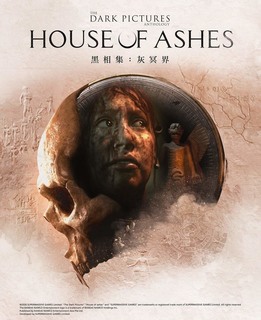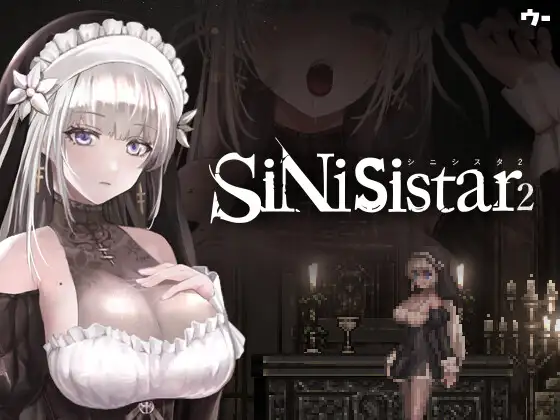黑神話:鐘馗
《黑神話:鐘馗》是由中國遊戲公司「遊戲科學」繼《黑神話:悟空》之後推出的「黑神話」系列第二部作品。不同於以《西遊記》為藍本的前作,本作選擇以中國民間傳說中廣為流傳、專司捉鬼降妖的神祇「鍾馗」作為核心創意來源。這樣的選擇不僅延續了「黑神話」系列深挖中國傳統文化的特色,也讓整體敘事有了全新的舞台與氣質。目前遊戲仍處於早期開發階段,尚未公開實機內容,但已經在玩家群體中引起熱烈討論。
在劇情設定上,《黑神話:鐘馗》延續「黑神話」系列的世界觀,但並非《悟空》劇情的直接延伸,而是將焦點轉向另一位截然不同的傳奇人物。鍾馗在中國傳統文化中象徵著正義與威嚴,他手持寶劍、面貌剛烈,專門捉拿妖魔鬼怪,被視為「辟邪鎮宅」的神靈。遊戲科學在答疑中提到,團隊希望嘗試與《悟空》截然不同的故事走向與遊戲體驗,將玩家帶入一個更具陰森氛圍與神怪色彩的世界。在這樣的背景下,鍾馗的形象被重新詮釋,既保留其在傳說中的驅鬼屬性,又可能加入對人性、善惡與命運的全新探討,使玩家能在遊戲中感受到既熟悉又陌生的文化張力。
操作層面方面,雖然官方尚未公開具體戰鬥與系統細節,但從系列定位來看,本作將依舊是單機制的動作角色扮演遊戲。結合《黑神話:悟空》所展示出的高品質動作系統與沉浸式敘事,本作會延續高自由度的戰鬥體驗,透過鍾馗在廣闊的奇幻舞台上與各類妖魔進行對決。與此同時,角色養成、技能演繹與裝備系統也大概率會在設計中佔據重要位置。值得注意的是,鍾馗作為文化符號,極有可能帶來與悟空完全不同的戰鬥風格,例如更偏向「驅邪」與「封印」的設計,形成另一種獨特的遊戲體驗。
在戰鬥風格上,鍾馗與《黑神話:悟空》的孫悟空將展現截然不同的戰鬥特色。悟空象徵靈動與變化,他的玩法偏向高速、靈巧以及法術變化;而鍾馗則更貼近「剛正不阿、鎮壓邪祟」的形象,因此其戰鬥風格極可能以沉重、果斷的打擊為主,配合鎮妖、封印、破邪的技能機制,讓玩家感受到「一劍定邪」的威嚴力量。
遊戲中,鍾馗或將持有巨劍、令牌、符籙等武器與法器,形成近戰與法術的結合。近戰部分展現其力量型戰士的定位,而符籙與法術則可能提供輔助與控制功能,例如削弱妖魔、驅散幻象、或以雷火驅邪的方式造成範圍傷害。這種設計能夠凸顯鍾馗「神鬼克星」的傳統形象,並在遊戲機制上帶來與悟空截然不同的遊戲體驗。
在劇情互動方面,鍾馗作為民間信仰中極具正邪分明的角色,他的故事線或許將不僅僅是單純的「殺妖」,更可能探討「妖即人心,魔即執念」的哲理。部分妖魔也許源自人性扭曲或執念不散,而鍾馗的選擇將影響劇情走向。這意味著遊戲可能加入「道德抉擇」元素,玩家或許需要在「徹底消滅」與「度化解脫」之間做出判斷,從而影響故事的多重結局。
如果延續《悟空》的世界設計,《黑神話:鐘馗》很可能會打造一個更陰森詭譎的舞台。城隍廟、亂葬崗、鬼市、黃泉渡口等中國傳統意象或將成為主要場景,結合次世代畫面表現,在探索過程中感受到濃厚的詭秘氛圍。這些場景不僅是地圖,還可能與遊戲任務、BOSS戰及文化背景深度結合,構建一個獨具東方神秘感的黑暗世界。
市場評價方面,儘管遊戲目前尚未推出任何實機畫面,但因「黑神話」系列已憑藉首部作品《悟空》打下深厚的玩家期待與信任基礎,消息一經釋出便迅速在玩家圈內引發關注。許多玩家認為,選擇鍾馗作為新篇章主角,意味著遊戲科學有意拓展中國神話題材的廣度,避免「黑神話」系列侷限於《西遊記》的框架之內。同時,官方明確表示「西遊,不會到此為止」,更進一步證實「黑神話」並非單線性系列,而是有望發展為龐大的多元神話宇宙。整體來看,市場對其期待值極高,既希望其能繼承前作的高品質,也期待它能開創屬於自己的獨特風格。
整體來看,《黑神話:鐘馗》若能實現這樣的戰鬥設計與敘事深度,將會成為與《悟空》並列、卻又風格迥異的作品。不僅會延續「黑神話」系列對中國神話題材的獨特詮釋,更可能將東方傳統的鎮邪文化推向全球玩家眼前,進一步擴大中國神話題材在國際上的影響力。
“Black Myth: Zhong Kui” is the second installment in the Black Myth series by Chinese game studio Game Science, following Black Myth: Wukong. Unlike its predecessor, which was inspired by Journey to the West, this new title takes its creative foundation from Zhong Kui, a legendary figure in Chinese folklore known for exorcising demons and capturing evil spirits. This choice not only continues the series’ tradition of exploring Chinese cultural heritage but also gives the narrative a fresh stage and atmosphere. Although the game is still in its early development stage and no gameplay footage has been revealed yet, it has already sparked heated discussions among players.
In terms of narrative, Black Myth: Zhong Kui inherits the overarching worldview of the series but is not a direct continuation of Wukong. Instead, it shifts the spotlight to another legendary figure of a completely different nature. In Chinese tradition, Zhong Kui symbolizes justice and authority, wielding his sword with a fierce visage, capturing demons and spirits, and protecting homes as a guardian deity. According to Game Science’s developer Q&A, the team wishes to deliver a story and gameplay experience distinct from Wukong, immersing players in a darker, more supernatural world. In this context, Zhong Kui’s image is reinterpreted—while retaining his folkloric exorcist traits, the game may also explore themes of humanity, morality, and fate, creating a cultural tension that feels both familiar and new.
From a gameplay perspective, while no details of combat or systems have been officially disclosed, the title is expected to remain a single-player action RPG. Building on the high-quality combat mechanics and immersive storytelling demonstrated in Wukong, the game will likely continue offering players a high degree of freedom in combat, as Zhong Kui faces off against all manner of demons in a vast, fantastical world. Character progression, skill systems, and equipment customization will likely play an important role as well. Given Zhong Kui’s cultural symbolism, his combat style is expected to differ significantly from Wukong’s, leaning more towards “exorcism” and “sealing” mechanics, providing a unique gameplay identity.
In combat style, Zhong Kui and Wukong are designed as sharp contrasts. Wukong embodies agility and transformation, with a combat style that favors speed, dexterity, and spellcasting. Zhong Kui, by contrast, represents upright righteousness and the subjugation of evil. His gameplay will likely emphasize heavy, decisive strikes, complemented by skills that banish, seal, or purify demons—giving players the sense of righteous power embodied in the phrase “one sword to vanquish evil.”
Zhong Kui may wield a greatsword, spirit seals, or talismans, blending melee power with mystical abilities. His physical attacks would establish his role as a strength-based warrior, while his talismanic arts could offer support and control functions—such as weakening demons, dispelling illusions, or channeling thunder and fire to deal area damage. Such mechanics would highlight his folkloric image as a bane of spirits and demons while offering a gameplay style completely distinct from Wukong’s.
Narratively, Zhong Kui’s arc may extend beyond simple demon-slaying, delving into the philosophical theme that “demons are born from human hearts, and devils from obsessions.” Some monsters may emerge from twisted human desires or lingering attachments, forcing Zhong Kui into choices that shape the story’s outcome. This suggests possible moral decision-making elements, where players may choose between outright destruction or granting redemption, leading to multiple possible endings.
If the game follows Wukong’s approach to world design, Zhong Kui will likely feature eerie, atmospheric environments such as City God temples, mass graves, ghost markets, and crossings into the underworld. Enhanced by next-generation visuals, these locations will immerse players in a hauntingly mysterious atmosphere. Beyond being maps, such locations could be deeply integrated into quests, boss battles, and cultural storytelling, constructing a uniquely dark world steeped in Eastern mysticism.
On the market side, although no gameplay has yet been shown, Black Myth: Zhong Kui has already attracted tremendous anticipation thanks to the success of Wukong. Fans see the choice of Zhong Kui as a sign that Game Science aims to expand beyond the confines of Journey to the West, broadening the scope of Chinese mythology as the foundation for the series. The studio has explicitly stated that “Journey to the West will not end here,” confirming that Black Myth is not a linear saga but rather the beginning of a vast, interconnected mythological universe. As a result, expectations are extremely high—players hope it will maintain the high standards set by Wukong while forging its own distinct identity.
In summary, if Black Myth: Zhong Kui delivers on its promise of unique combat design and deep storytelling, it will stand alongside Wukong as an equally important but stylistically different entry. The game not only continues the series’ mission of reimagining Chinese mythology but also has the potential to introduce the world’s players to the cultural legacy of exorcism and spirit-banishing traditions—further elevating the global reach of Chinese mythological themes.
運費計算方式:
貨款滿1000元運費外加90元
貨款1000以下:買1件運費外加 60元,買2件運費外加 70元,
買3件運費外加 80元 ,買4件運費外加 90元
貨到付款外加30元手續費
外島及大陸地區運費另計
付款方式:
線上刷卡:本站採用Paypal線上刷卡
虛擬帳號匯款:屬於您專屬的虛擬帳戶,方便站長查帳使用,本站強力推薦
實體ATM匯款:請將匯款帳號記錄下來至各大銀行ATM提款機轉帳
超商條碼繳費:請列印本站提供的條碼至四大超商繳費
線上轉帳:透過玉山銀行線上ATM轉帳(此系統只支援IE瀏覽器)
貨到付款:本站採用黑貓宅急便貨到付款
其他注意事項:
如需購買線上點數卡請直接跟站長連絡,本站不提供點數卡的線上付款




